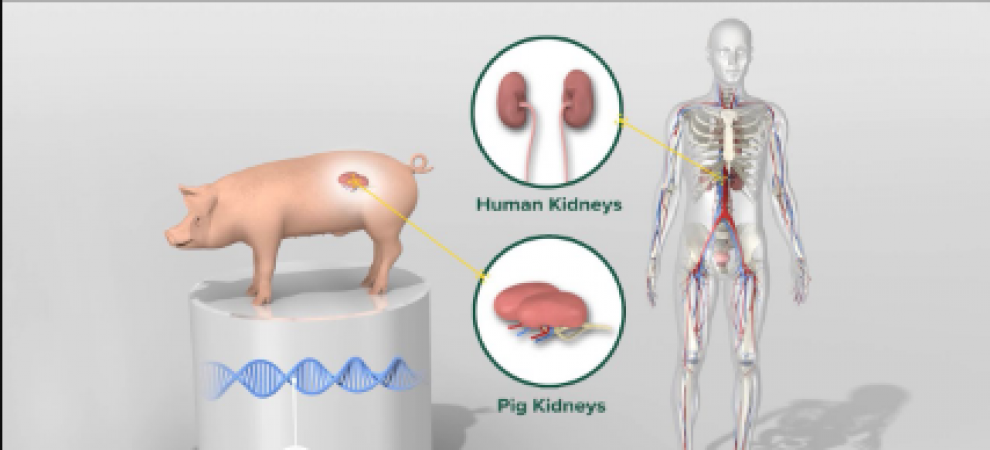
Washington: In a groundbreaking leap in medical advancement, a remarkable achievement has taken place at the University of Maryland Medical Center: a team of skilled surgeons successfully transplanted a kidney from a pig into a human recipient.
This groundbreaking procedure, conducted on January 22, 2023, is a pivotal moment in the realm of medical science, offering new hope to individuals with end-stage kidney disease.
The patient, a 57-year-old man, was the recipient of this revolutionary procedure, and the transplanted pig kidney exhibited remarkable functionality for a period of 54 hours, delivering what the medical team refers to as "life-sustaining" support.
Also Read: Boeing Starts Production of 6 Apache Helicopters for Indian Army, Delivery by 2024
This remarkable feat is the culmination of years of dedicated research into the realm of xenotransplantation, a cutting-edge area of medical science that involves transplanting organs from one species to another.
Pigs have taken the spotlight in this avenue of study, primarily due to the striking similarity in size and function between pig and human organs. Nonetheless, challenges loomed large, owing to the distinct dissimilarities between pig and human organs, such as the presence of certain pig proteins that could potentially trigger adverse immune responses in humans.
Also Read: WhatsApp Introduces AI Stickers and Community Group Suggestions for Beta Users
Addressing these intricate hurdles, the surgical team took meticulous measures. They employed a genetically modified pig, meticulously engineered to lack the specific pig proteins that were most likely to instigate an immune reaction.
Additionally, a pioneering immunosuppressive drug regimen was employed to forestall any rejection of the pig kidney by the recipient's body.
The unprecedented success of this transplant marks a significant stride forward in the realm of xenotransplantation. This achievement marks the first instance where a pig kidney has exhibited normal functionality within a human recipient for an extended duration.
This accomplishment serves as a beacon of hope, suggesting that pig kidneys could potentially emerge as a viable solution for individuals grappling with end-stage kidney disease.
Buoyed by their achievement, the surgeons at the helm of this groundbreaking procedure exude optimism about the potential of xenotransplantation.
Also Read: Intel and Tower Semiconductor Terminate USD5.4-Bn Deal Due to Regulatory Hurdles
They envision a future where this innovative approach might alleviate the critical shortage of organs available for transplantation. However, these medical pioneers also caution that a substantial amount of further research is imperative before pig organs can be universally adopted for human transplantation.
The triumphant success of the pig-to-human kidney transplant heralds a seismic advancement in the field of medicine. It holds the promise of a future where organ shortages could become a relic of the past, potentially revolutionizing the way we approach life-saving procedures.
However, it's prudent to acknowledge that the journey ahead necessitates comprehensive research and rigorous scrutiny before pig organs can be integrated into routine human transplantation practices